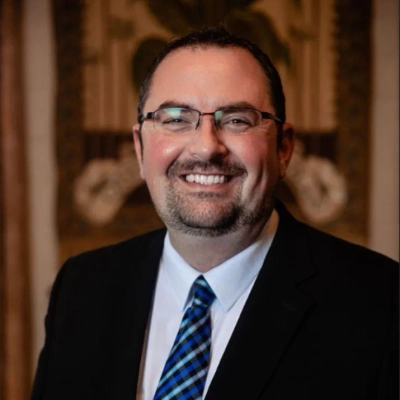7 Unexpected Challenges When Choosing a Dentist that Could Influence Your Decision
Choosing the right dentist can be more complex than many people realize, with several unexpected factors that could significantly influence your decision. From advanced imaging technology to the office atmosphere, these often-overlooked aspects play crucial roles in shaping your dental experience and long-term oral health. Drawing on insights from industry experts, this article explores seven surprising challenges to consider when selecting a dentist, ensuring you make an informed choice for your dental care needs.
- Advanced Imaging Technology Saves Teeth
- Functional Analysis Prevents Costly Redos
- Preventive Philosophy Shapes Patient Experience
- Emergency Care Access Influences Choice
- Responsive Communication Builds Patient Trust
- Office Atmosphere Impacts Dental Experience
- Payment Flexibility Affects Long-Term Satisfaction
Advanced Imaging Technology Saves Teeth
One of the challenges that people do not anticipate when selecting a dentist is the consistency with which people invest in technology that enhances accuracy. As a board-certified endodontist, I see patients who occasionally come to me after visiting other dental offices, and often, I encounter cases of fractures or infections that were not examined using standard X-rays. Cone beam CT imaging increases the likelihood of identifying a vertical root fracture to almost 90 percent compared to less than 60 percent with two-dimensional films. Such a difference determines the course of treatment since it can either preserve the tooth or require an implant.
I recall a patient who had been advised that extraction was the only course of action. After using 3D imaging, I was able to detect a treatable canal infection, which saved the tooth. This outcome saved her over three thousand dollars in future implant expenses and a considerable amount of recovery time. Technology is not a luxury in dentistry; rather, it is often what can make the difference between saving and losing a tooth.

Functional Analysis Prevents Costly Redos
Most patients assume that dentists perform similar evaluations, but finding out if they evaluate jaw function before they treat teeth can be the difference between treatment failure and success. Standard dental exams focus on cavities and gum disease but miss problems with functionality that cause the failure of 60% of dental work within 10 years. Dentists who check how your jaw moves and how your teeth touch when you chew help to spot underlying problems that lead to recurring issues.
Asking potential dentists about functional analysis helps to understand their philosophy of treatment and prevents costly redone work. Most practices do take X-rays and impressions but avoid the jaw movement evaluation that reveals why dental problems develop in certain patterns. Patients who select dentists based on functional diagnostic ability believe in not repeating treatment for the same problems and save about $15,000 over their lifetime on failed restorations compared to symptom-focused care.

Preventive Philosophy Shapes Patient Experience
An unexpected challenge involved assessing the alignment between a dentist's treatment philosophy and personal comfort with preventive care. While most people focus on location, insurance coverage, or reputation, I realized that some practices prioritized aggressive interventions over preventive strategies, which could lead to unnecessary procedures. During consultations, observing how the dentist discussed treatment options and emphasized long-term oral health revealed whether their approach matched my expectations. This factor became decisive; I ultimately chose a practice that focused on education, minimally invasive treatments, and patient collaboration. Prioritizing philosophical alignment ensured trust, reduced anxiety during visits, and created a sense of partnership, highlighting that subtle practice culture elements can be as important as technical skill or convenience when making a final decision.

Emergency Care Access Influences Choice
One challenge that often goes overlooked is evaluating a dentist's approach to handling emergencies outside regular office hours. While most patients focus on location, insurance acceptance, or chairside manner, access to prompt care in urgent situations can drastically affect overall experience and peace of mind. In my search, I discovered that some highly rated practices had limited after-hours protocols or relied solely on answering services, which could lead to delays during dental emergencies. This insight shifted my priorities, placing equal weight on emergency responsiveness and patient communication systems.
Ultimately, the dentist I selected maintained a balance of thorough preventive care, convenient scheduling, and a clearly defined protocol for urgent cases, ensuring both routine and unexpected needs could be met efficiently. This consideration gave me confidence that I would have support during critical moments, which ultimately influenced my final choice more than aesthetic or convenience factors alone.

Responsive Communication Builds Patient Trust
An unexpected challenge was evaluating how the office handled communication outside of scheduled visits. Many clinics had excellent chairside manner but relied heavily on automated systems for follow-up, which left gaps when unexpected issues arose. The deciding factor became responsiveness—whether staff would answer questions directly by phone or provide clear guidance between appointments. That detail influenced the final decision more than location or even pricing. A dentist who offered reliable communication created a greater sense of trust, since dental concerns often surface at inconvenient times and require reassurance before the next appointment.

Office Atmosphere Impacts Dental Experience
One unexpected challenge I faced when choosing a dentist was the office environment and staff dynamics. While many people focus on a dentist's credentials, experience, or the technology they use, I realized that the overall atmosphere of the office and the attitude of the staff played a huge role in the experience.
During my search, I visited a few practices where the staff seemed either disorganized or not particularly friendly. I found that the level of comfort and trust I felt with the office team was just as important as the dentist's skills. It's crucial to feel at ease when you're in a vulnerable situation, especially in a dental chair.
This factor influenced my final decision significantly. I chose a dentist whose office staff was welcoming, well-organized, and made an effort to create a comfortable environment. I wanted a place where I felt I could build a long-term relationship, and where the experience felt positive, not just efficient. It turned out to be an important decision for my overall satisfaction, making future visits feel more relaxed and less stressful.

Payment Flexibility Affects Long-Term Satisfaction
An unexpected challenge was evaluating how the office handled financing and payment flexibility. Many dental practices offered excellent care but required upfront payment or credit-based financing, which could create stress when unexpected procedures were needed. For a long-term relationship, it was important that the office offered clear, manageable payment structures that did not complicate care decisions.
This factor influenced the final choice by narrowing the search to practices that communicated openly about costs before treatment and provided options such as in-house payment plans. The reassurance that financial logistics would not become a barrier to necessary care made the difference. It showed that choosing a dentist is not only about clinical skill but also about how the practice supports patients in managing the practical side of treatment.


